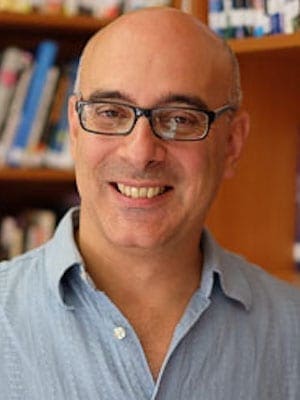The well-publicized “In Defense of Christians” (IDC) conference, which focused on Christians in the Middle East, had many positive aspects and several drawbacks.
What is needed at this point in the Middle East’s tragic history is a summit that would aim to provoke a paradigm shift in the popular discourse.
Such a gathering would take a title, such as “Christians at the Heart of the Middle East’s Future” or “A Faith-Driven Majority against Minority Religious Bigots” or something along those lines.
There are three key elements that this hypothetical summit would need to do.
First, it would justifiably keep its focus on the Christians of the Middle East because they are a major at-risk group at the moment, but it would invite speeches both from Christian, Muslim and other leaders.
Second, in addition to advocacy, this summit would call on “Western powers” to step down their militarization of conflicts in the Middle East.
What is needed in these tragic days is not the arming of so-called “minority” or “opposition” groups.
Haven’t most conflicts that we are living today been triggered by this strategy of arming a supposedly “aligned” group against another supposed “rogue” group?
What is needed at this point more than ever is a demilitarization and de-escalation of the conflict.
If Western powers want to bomb anything, they should bomb arms depots on all sides of the conflict.
Finally, it would call for a reassignment of these obscene militarization budgets to aggressive strategies of education, community development, state building and the eradication of systemic corruption across the Middle East.
Yes, Christians of the Middle East are being persecuted. We are being driven out of our homes and many churches are being burned down.
We are being pushed to emigrate out of the region. We are becoming less and less hopeful about our children’s ability to live peacefully in this part of the world.
But the enemy is not simply Islam. Conferences, media, pressure groups, preachers, teachers and writers who keep reinforcing this simplistic message are not helping us.
They are not defending us, protecting us or ensuring the prevention of our demise.
This question requires a major paradigm shift in everyone’s thinking with regard to who belongs to the “majority” and who belongs to the “minority.”
As Christians, Muslims, Jews and other people of faith, those of us who simply want to be loving human beings and who desire to harness our love for the building of peace, we are the “majority” and we need to become more vocal.
But let’s be honest, it is easier to make great rhetorical speeches about love than to actually practice it, particularly toward those who do not share our political, economic and religious opinions, let alone those who physically harm us and are objectively our enemies.
This is not going to happen simply by following a code of ethic, whether human or religious.
But in the person of Jesus we have far more than a moralizing teacher on love. I am not speaking about Christianity here, but about the person of Jesus, who is shared by both Christians and Muslims, and, some would argue, also by Jews and other people of faith.
Jesus manifested the height of God’s love for us while we were still God’s “enemies.”
As the apostle Paul puts it, “But God demonstrates his own love for us in this: While we were still sinners, Christ died for us” (Romans 5:8).
And rather important in my mind, the fact that Jesus was killed was hardly incidental.
His willingness to lay down his life through death was flatly the culmination of his willingness to lay down his life throughout his life as well.
He lived entirely for others, including for God’s enemies, and he died entirely for others, as well, including God’s enemies, which includes us.
As people of faith, if we want to get anywhere with our good intentions to love others, then certainly we have a great example to follow in the person of Jesus.
As Middle East Christians, we say to the world: This is a battle between people who love God and people who hate him. Stop arming anyone, whether those you consider your enemies or those you consider your friends.
If you want to support us, then support us in our mission of educating, developing communities, building states of accountability and transparency, fighting systemic corruption and building civil societies.
 Martin Accad is director of the Institute of Middle East Studies at Arab Baptist Theological Seminary in Beirut. A longer version of this column first appeared on the IMES blog and is used with permission. You can follow him on Twitter @marzaatar and IMES @IMESLebanon.
Martin Accad is director of the Institute of Middle East Studies at Arab Baptist Theological Seminary in Beirut. A longer version of this column first appeared on the IMES blog and is used with permission. You can follow him on Twitter @marzaatar and IMES @IMESLebanon.
Editor’s note: This is the second of a two-part series. Part one is available here.

